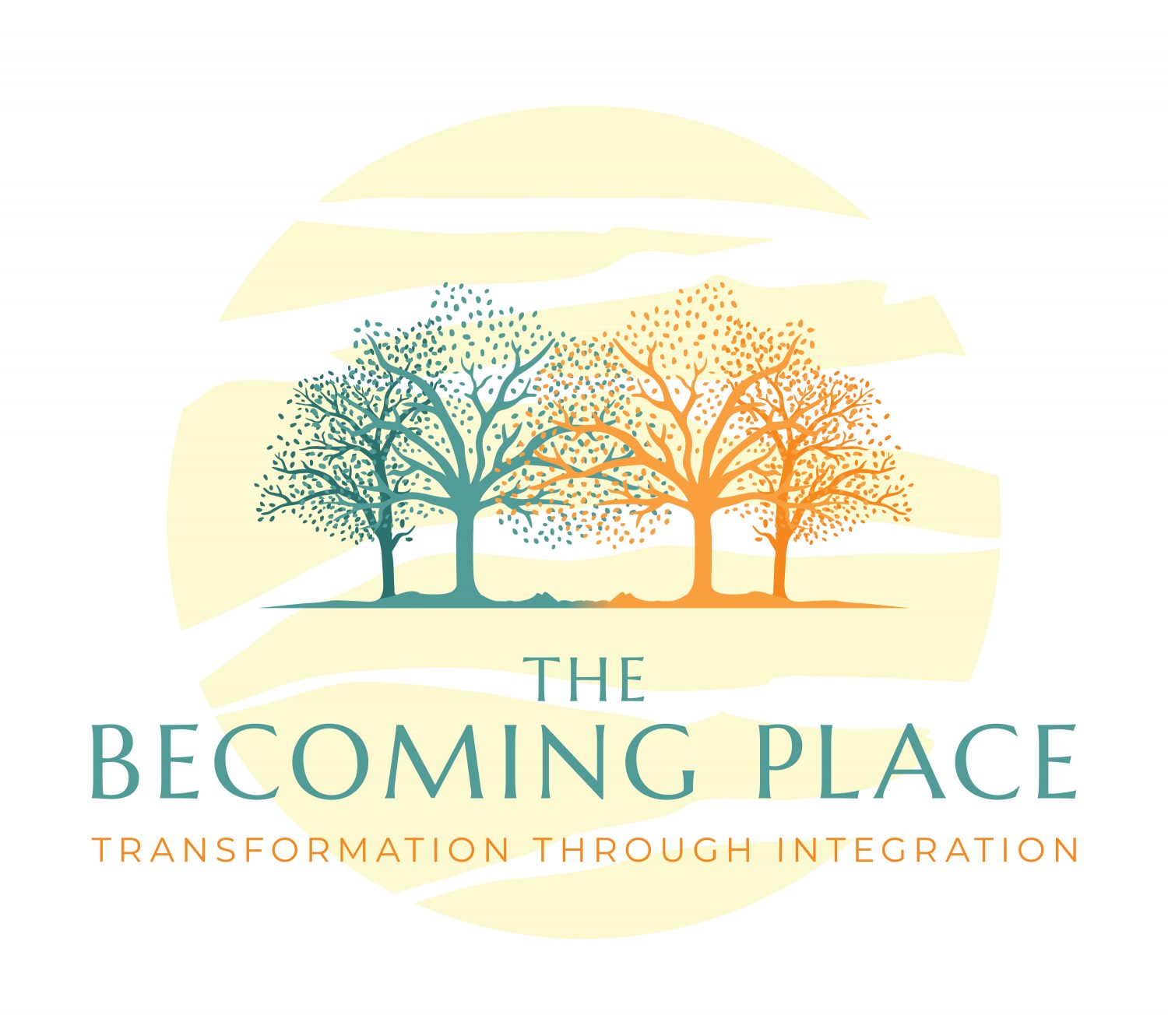It eats at you. The resentment. The pain.
You wish it weren’t like this.
That you didn’t have to feel this way. That things had happened differently.
But they didn’t.
Some things can never be forgiven, you remind yourself.
But sometimes you wonder, can they? Because the truth is, you’d like to be free. To not carry the weight of what happened with you anymore. If only that were possible.
Redefining what forgiveness is and how it works can give you that freedom. It will help you reclaim your power and feel stronger and healthier.
I’m going to walk you through 5 myths about forgiveness that could be holding you back from healing, suggest 16 tips to help you forgive when you’re trying but can’t seem to get there, and give you the step-by-step models of the top 3 psychologists researching forgiveness today.
Why Forgiveness is So Hard: 5 Myths It’s Time to Let Go
The biggest barrier to forgiveness is sometimes a misconception about what it really means. Are any of these 5 common myths interfering with your ability to forgive?
Myth #1 Forgiving is Something You Do for the Other Guy
Don’t wait around for somebody else to earn your forgiveness. It doesn’t have anything to do with them anyway.
Forgiveness is for you.
The point is to let go of negative emotions that are poisoning your health and reducing your happiness. If somebody already hurt you once, why would you allow them to keep hurting you?
The good news is, forgiveness is crazy effective at improving your quality of life.
Here’s one example: Dr. Fred Luskin from Stanford University taught forgiveness techniques to the family members of murder victims. Afterwards, participants averaged an almost 35% reduction in stress-related physical symptoms.
That’s thirty-five percent fewer stomach aches, backaches, and sleepless nights.
Even better, participants’ feelings of hurt decreased more than half.
Some of the participants in his study had lost their loved ones over 20 years earlier. Isn’t it about time they finally got some relief?
And the coolest part is that they provided that relief to themselves. By learning the simple steps to forgiveness, you can give yourself the same gift.
You don’t have to wait decades to do it, either.
Myth #2 Forgiving Means Forgetting
There’s a big difference between forgiveness and reconciliation.
Forgiveness means letting go of negative emotions that are decreasing your quality of life. It doesn’t mean letting go of common sense.
Relationships don’t benefit from constantly dredging up past problems. You don’t benefit from constantly dwelling on something in the past. That’s where the saying about forgiving and forgetting comes from, and it that sense it’s true.
But there’s a big leap between choosing not to hold a grudge and having amnesia. Even healthy relationships may develop unhealthy patterns from time to time that should be noticed and addressed.
And sometimes forgiveness happens best from a distance. Especially in cases of abuse, safe boundaries may be exactly the tool you need to be able to finally heal and move on.
Myth #3 If I Forgive, I’ll Just Get Hurt Again
Yeah, you’ve got to be thoughtful. You’ve got to have boundaries. But when you do, forgiveness reduces your future pain.
In this study by Dr. Everett Worthington, people who forgave didn’t have the usual accumulated mental health effects associated with high levels of stress.
And in this study, participants’ stress levels and mental health symptoms increased on the days when they were less forgiving and decreased when they practiced forgiveness.
I’ve felt that one myself. How about you?
Forgiveness reduces chronic anger, which is associated with cardiovascular disease and a weakened immune system. It also increases self-esteem and gives people a sense of personal empowerment.
In the case of ongoing relationships, forgiveness reduces conflict and stress.
There’s also good news if you are trying to forgive someone from an unsafe relationship in your past. The other person doesn’t have to accept your forgiveness in order for you to receive these benefits. In fact, they don’t even have to know whether you decided to forgive them. You can gain all the benefits of forgiveness and maintain the space you need.
Turns out, forgiving is one of the best things you can do to protect yourself.
Myth #4 Forgiveness Means Saying That What Happened Was Okay
In the words of Dr. Everett Worthington, “Whether I forgive or don’t forgive isn’t going to affect whether justice is done. Forgiveness happens inside my skin.”
You don’t have to agree that a course of action was acceptable in order to forgive. You don’t have to wait for justice to be delivered, nor do you have to prevent justice.
From a psychology standpoint, the key factor is how much you are dwelling on what happened. If your thoughts are stuck in the past, it’s like your body is continually reliving the painful event that happened. Disengaging from that brings you mental and physical benefits.
And preventing whatever happened from impacting your health any further is a key part of justice, right? Because why should you keep paying the price for someone else’s mistake?
In this study, participants who forgave conditionally—meaning they waited for the other person to ask forgiveness or to promise change before forgiving—were more likely to die early than those who forgave unconditionally.
Sounds like a pretty big injustice.
So go ahead and forgive. You can let go of negative emotions without letting someone off the hook when it comes to dealing with the consequences of their actions.
Myth #5: Forgiveness is a Sign of Weakness
Dr. Worthington replies, “to that I say, well, the person must not have tried it.”
Forgiveness is not the same thing as passivity. Quietly stewing about a problem might be mistaken for forgiveness by someone on the outside, if they aren’t paying close attention. On the inside, it’s completely different.
Forgiveness requires personal accountability, self-discipline, and inner strength. It’s much easier, at least in the moment, to hold a grudge.
Truth is, choosing to forgive is almost always a step forward in the journey of self-development. It invites you to look objectivly at your own motivations and to take accountability for your shortcomings. It’s tough to do that at any time, let alone when emotions are running high and someone else’s mistakes are an easy distraction.
So the question is, are you strong enough to forgive?
16 Tips to Help You Forgive
So, what if you are ready to let go and claim the benefits of forgiveness, but you just can’t seem to get there? I have 10 tips to help you claim all the benefits forgiveness can bring to your life.
- Feel your feelings: Give yourself a chance to feel and express your emotions. If you skip this step it is hard to let feelings go—they tend to linger under the surface.
- Get out of your head: Sometimes an object lesson helps. Fill a backpack with small rocks representing the feelings you are carrying. Go for a walk and pause periodically to take a rock out and leave it. Enjoy the increasing feeling of freedom and lightness.
- Embrace your future: Ask yourself what impact you want this event to have on you ten years in the future. Start acting as if you feel that way now. If you don’t want this event to define the next decade in your life, don’t let it define today either.
- Forgive partially if you aren’t ready to forgive fully: Write your feelings in a notebook and leave it in a drawer for a few hours, along with your hurt and anger. Remind yourself that you can come back and pick it up later. Feel what it’s like to let go of that burden temporarily, and you will become more ready to put it down permanently.
- Forgive the person, not the action: Focus on having empathy for the flawed human being who made the choice, not on being okay with what they did.
- Use the law of attraction: Whatever you focus on in life gets bigger. If you focus on feeling hurt and angry you will bring more of the same to yourself.
- Be grateful: Notice the things in life you do have to be grateful for. It siphons power away from disappointments that would steal your joy.
- Create a ritual: Symbolically give yourself closure: Write a message in the sand on the beach and let the tide wash it away, or write your feelings on a paper and burn it.
- Take responsibility for your part: Power comes from accountability. Ask yourself what can you change? What you can learn from the situation? How can you help someone else?
- Let go of false power: Are you feeling any sort of power in being a victim? This kind of power is an illusion. It makes you sick and holds you back from your potential. Replace it with real empowerment.
- Don’t take stuff personally: Most of what people do is a reflection of their mental state, not of you. You don’t have to give them power to upset you.
- Feel the difference: Notice the feeling of freedom and peace that comes from letting go of the past. Focus on that strength and serenity instead of ruminating on past hurt.
- Don’t look for reasons to be offended: Most people have good intentions. Give them the benefit of the doubt.
- Allow space for imperfection, in yourself and others: Expect that there will be mistakes, and choose an attitude of kindness and tolerance.
- Live in the present: Joy comes in the now. Focus on beauty and connection now, not on thinking about the past.
- Keep at it: Hurt and anger may resurface again after you decide to forgive. It’s okay. Refocus and keep working through it.
In case forgiveness still seems tough, I have outlined the step-by-step programs of the top three psychologists researching forgiveness today. You can pick the one that feels like the best fit for you.
First up is Dr. Fred Luskin, and he has some good news for you. His research shows that people get better at forgiveness as they continue to do it. And even better, the more people do it, the more they want to do it.
That’s because it’s empowering. It gives you back control of your emotions and your life. Is that something you could use?
What it Looks Like to Reclaim Your Power Through Forgiveness
Dr. Fred Luskin says people go through four stages in learning to forgive. As you move though the stages, the whole way you approach hurtful situations changes. You don’t get offended as easily. Forgiveness comes more readily. And you experience more of the benefits that come from forgiveness in an ongoing way.
- Stage one: You are deeply hurt. You feel victimized. There is self-righteous anger. You think it would be wrong to forgive.
- Stage two: You choose to forgive, but it takes a long time. When you finally forgive, it might be because you don’t like the impact negative emotions are having on you, because you want to repair a relationship, or because your perspective has changed.
- Stage three: You forgive new hurts faster. You believe that the amount you suffer is in your control.
- Stage four: You choose to rarely take offense. After learning that anger isn’t a source of happiness, you take an attitude of being ready to forgive in advance.
The coolest thing about the whole process is that it shows how much forgiveness helps. Nobody would keep progressing from stage one to stage four unless forgiveness made them feel better.
It can make you feel better too. Luskin says there are nine steps to follow when you are trying to forgive.
The Nine Steps to Forgiveness that Can Help You Feel Better
These 9 steps can help you work through individual instances of forgiveness:
- Know exactly how you feel and what about the situation is not OK. Then, tell a trusted couple of people about your experience.
- Make a commitment to yourself to do what you have to do to feel better. Forgiveness is for you and not for anyone else.
- Forgiveness does not necessarily mean reconciliation. It also doesn’t mean condoning what happened. What you are after is peace.
- Get the right perspective. Your primary distress is coming from the hurt feelings, thoughts and physical upset you are suffering now, not what offended you or hurt you two minutes – or ten years – ago. Forgiveness helps to heal those hurt feelings.
- At the moment you feel upset practice a simple stress management technique to soothe your body’s flight or fight response.
- Give up expecting things from other people, or your life, that they do not choose to give you. Remind yourself that you can hope for health, love, peace and prosperity and work hard to get them.
- Put your energy into looking for another way to get your positive goals met than through the experience that has hurt you. Instead of mentally replaying your hurt, seek out new ways to get what you want.
- Remember that a life well lived is your best revenge. Focusing on your wounded feelings gives the person who caused you pain power over you. Instead look for the love, beauty, and kindness around you. Forgiveness is about personal power.
- Amend your grievance story to remind you of your heroic choice to forgive.
It’s a great process for helping your commitment to forgive stick. Dr. Everett Worthington also developed a model to help you fully forgive, and to experience more of the health benefits that come with forgiveness.
How to Help Your Forgiveness Stick Using the REACH Model
Worthington says there are two kinds of forgiveness: decisional and emotional. Decisional forgiveness is the choice to forgive. Emotional forgiveness is the process of changing the negative feelings you carry with you.
Two different things, right?
No surprise, the emotional and health benefits of forgiveness come mostly with the emotional forgiveness. That’s also the tougher one for most people, at least at first. Everett cam up with a 5-step model he calls REACH to help you get there, and he has had positive results testing it in over 20 controlled studies.
R = Recall the hurt. Face your feelings and make a decision to forgive instead of feeling like a victim or seeking revenge.
E = Empathize. Try to understand the other person’s perspective. Replace your negative feelings towards them with positive feelings like compassion or sympathy.
A = Altruistic gift. Give forgiveness as an unselfish gift. We have all been offered forgiveness at some time, and we can choose to pay that forward to someone else.
C = Commit. Commit to making your decision stick. This could involve writing a yourself a reminder or sharing your decision with other people.
H = Hold onto forgiveness. If painful feelings resurface, revisit your commitment.
If you prefer to break each of those five steps into greater detail, Robert Enright’s four phase model includes extensive detail about the emotional process involved with forgiveness.
Healing Through Forgiveness with Dr. Robert Enright’s 4-Phase Program
Abuse survivors who used Enright’s forgiveness program improved significantly more than survivors using treatments like assertiveness training and anger validation in this study.
Symptoms of depression, anxiety, and post-traumatic stress all improved. So did self-esteem, the ability to find meaning in suffering, and the ability to feel a sense of mastery over the situation.
Bottom line? It’s good stuff. And following the process can help you too.
Phase 1: Uncover your anger
Sometimes people try to jump to forgiveness without actually dealing with the pain and anger. It doesn’t work. At best you end up with partial forgiveness that doesn’t bring the benefits we’ve been talking about. Try asking yourself these questions:
- How have you faced your anger?
- Are there ways you have avoided dealing with your anger?
- Has your anger impacted your health?
- Do you have feelings of shame or guilt that you don’t want to acknowledge?
- Do you obsess about the person or what they did?
- Do you compare your situation with their situation?
- Has this incident changed your life or the way you look at the world?
PHASE 2: Decide to Forgive
This is the point to commit. Ask yourself:
- Has what you have been doing worked?
- Are you willing to begin the forgiveness process? This includes being open to changing many of the ways you have been thinking and acting.
PHASE 3: Work Through Forgiveness
These are the changes in outlook that will bring you peace and healing
- Accept the pain.
- Cultivate compassion toward the person who hurt you. You don’t have to condone their choice, but you can see them as a person who struggles like you do.
- Work toward understanding.
- Give the offender a gift.
PHASE 4: Deepen Forgiveness
This is the most profound level of healing and personal growth, which many people don’t progress far enough to reach.
- Discover the meaning of suffering.
- Discover your need for forgiveness.
- Discover that you are not alone.
- Discover the purpose of your life.
- Discover the freedom of forgiveness.
What if the Person You Need to Forgive is Yourself?
You can apply the same steps of forgiving someone else to forgiving yourself. In fact, you should.
You are more likely to make better choices in the future when you see yourself as a good person who sometimes does the wrong thing. In a word, when you forgive. Research shows past criminals are more likely to stay clear of future criminal activity when they understand this difference. The same is true for other types of mistakes.
Turns out, dwelling on your past mistakes can actually make you less accountable. Guilt, which is healthy regret for a mistake, morphs into shame, which is an overall feelings of worthlessness.
Guilt motivates better behavior. Shame immobilizes.
You can read here about someone who held himself back from making lasting positive choices by dwelling on his past mistakes. And he is not alone.
The key is taking accountability for the mistake you made as part of your forgiveness process.
How to Heal Through Taking Accountabilty
First, if you want to do better in the future, avoid the temptation to feel sorry for yourself or to make big generalizations about what a terrible person you are. Yes, you made a mistake. Yes, you also do good things, and you have positive future potential. They are both true.
Research says you are more likely cope productively if you look at yourself in a balanced, realistic way.
Second, be honest with yourself about the best way to make amends for your mistake. This step can be scary, so it’s easy to skip it. But it’s important.
There can be two goals to making amends: one is to give yourself a sense of peace and the other is to offer restitution. Consider both when you choose a way to make amends.
Restitution can be about time, money, the law, or heartfelt human communication, depending on the situation. Don’t skip the hard part that you know really needs to be done.
If contact from you is unwelcome by the other person, respect that. Do the best that you can in a different way. For example, you could volunteer through an appropriate community organization.
Make your best effort, even if you know your best can’t fully make up for the mistake you made. It’s key to healing and moving on from the past.
Your Future of Freedom and Peace
Imagine yourself free.
Free of the past.
Free of the mistakes that never should have happened.
Free to choose how you feel, and how your future unfolds.
You can’t change the past, or erase the pain that has shaped your experiences. But you can change the future.
You can decide what experiences will define you.
You can live free of bitterness, sadness, and regret.
You can claim power over your own life.
It’s time to forgive.
































4 thoughts on “Forgiveness: Your Ultimate Guide to Finding Freedom from the Past and Peace in the Future”
Lovely work Angie. That’s what life is all about: forgiveness.
Thanks Celine Healy https:// http://www.wellnessthatworks.com.au
Thanks for visiting, Celine!
I locked away something i did a long time ago… i blamed myself for many things over the years for what i did…i maybe was passive of hurtful things because i blammed myself…i never forgave myself…i lost my husband a few months ago, i found something in his belongings that took me back to that place 40 years ago.. it felt like right now….besides grieving my husband im also grieving things that happened in our lives over the years…..i forgave him always, but i never forgave myself…im working on it….its easier to forgive someone else than yourself! Its easier to take the blame….
It is so hard to live with regrets. I wish you peace and healing. http://thebecomingplace.com/why-forgiving-yourself-is-the-best-way-to-make-up-for-your-past-mistakes/